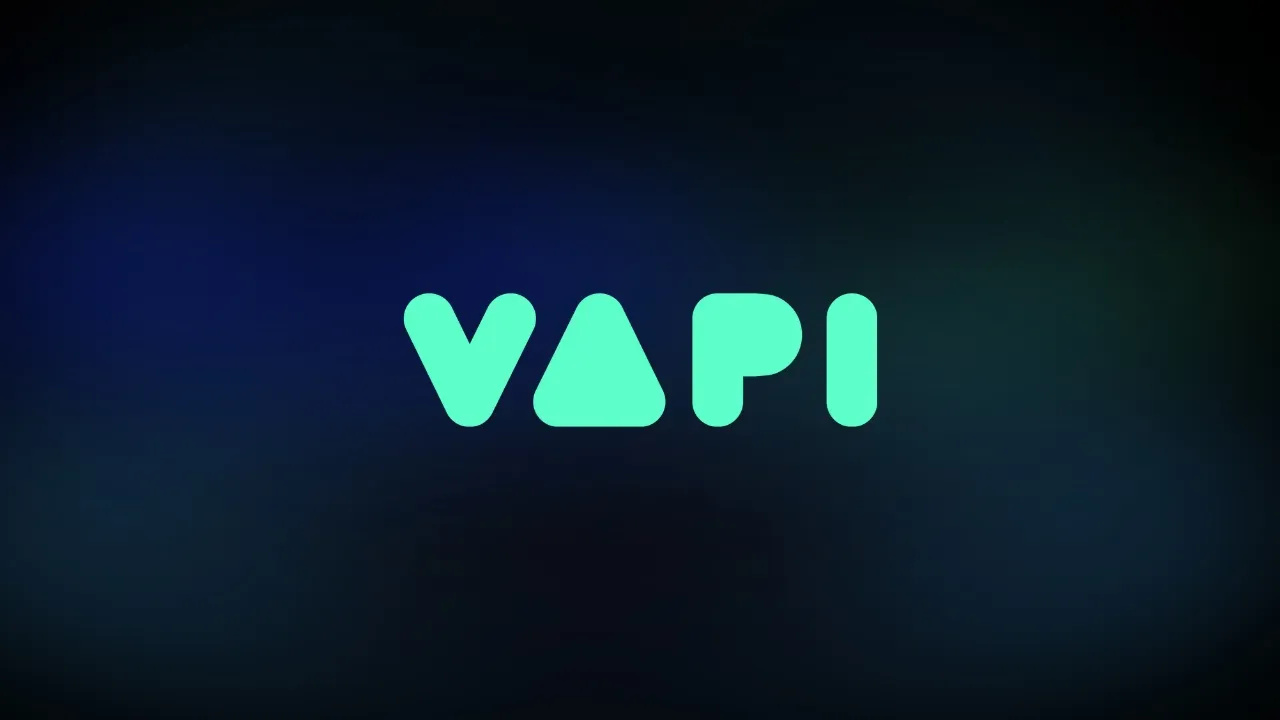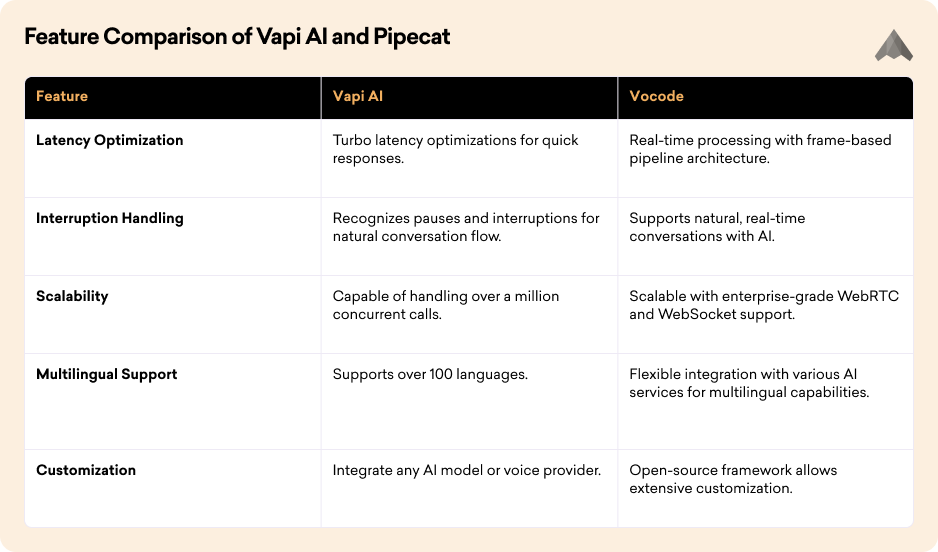Voice AI agents have become integral in various sectors, offering capabilities such as customer support automation, virtual assistance, and interactive voice response systems. Choosing the appropriate platform can significantly impact the efficiency and effectiveness of these applications. This article delves into Vapi AI and Pipecat, examining their offerings to help you determine which aligns best with your organizational needs.
What is Vapi AI?
Vapi AI is a developer-centric platform designed to empower businesses with customizable tools for building advanced voice AI agents. It caters to enterprises seeking deep customization and flexibility in their voice applications.


What is Pipecat?
Pipecat is an open-source Python framework for building voice and multimodal conversational agents. It manages the complex orchestration of AI services, network transport, audio processing, and multimodal interactions, allowing developers to focus on creating engaging experiences.

Feature Comparison of Vapi AI and Pipecat

Summary of Features
Both Vapi AI and Pipecat offer robust solutions for developing voice AI agents. Vapi AI provides a more streamlined, ready-to-deploy platform with strong scalability and multilingual support, making it suitable for businesses seeking quick implementation. On the other hand, Pipecat's open-source nature offers greater flexibility and customization, ideal for developers looking to tailor their applications extensively.
Partner with Us for Success
Experience seamless collaboration and exceptional results.
Plans and Pricing of Vapi AI vs Pipecat

Pricing and Plan Conclusion
Vapi AI offers a straightforward pay-per-use pricing model, which can be cost-effective for businesses looking for a managed solution without the need to handle infrastructure. Pipecat, while free to use, may incur additional costs related to hosting and maintenance but provides the advantage of customization and control over the deployment environment.
Summary and Recommendation
Choosing between Vapi AI and Pipecat depends on your organization's specific needs:
- Vapi AI is recommended for businesses seeking a scalable, multilingual voice AI platform with minimal setup and management overhead.
- Pipecat is ideal for developers or organizations that require a highly customizable solution and have the technical expertise to manage and tailor the platform to their specific requirements.
Partner with Us for Success
Experience seamless collaboration and exceptional results.
Customer Reviews of Vapi AI and Pipecat
User experiences with Vapi AI are generally positive, highlighting its ease of integration and responsive support team. One user noted, "Love how easy it was to integrate voice AI into our platform with Vapi! A-tier support team and love the customizability."
Pipecat, being an open-source framework, has garnered attention for its flexibility and community-driven development. A user shared, "What I really love about Pipecat is its compatibility with a ton of different AI services." Nonetheless, some users have pointed out areas for improvement, such as the need for more comprehensive documentation and support.
Conclusion
Both Vapi AI and Pipecat offer unique strengths in the realm of voice AI agents. Vapi AI provides a user-friendly platform with robust support, making it suitable for businesses seeking a managed solution with quick deployment. Pipecat, with its open-source framework, offers extensive customization options, ideal for developers aiming to build tailored voice and multimodal conversational agents. Your choice between the two should align with your organization's technical expertise, customization needs, and resource availability.
